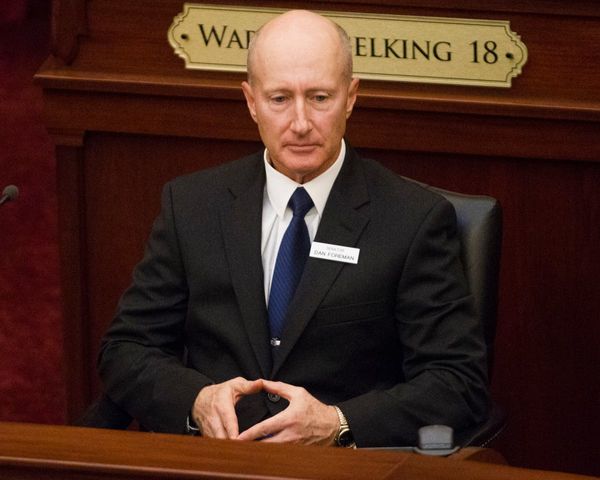
Civil engineers have welcomed a move by the Victorian treasurer, Tim Pallas, to overhaul the way the state awards construction contracts in a bid to rein in cost blowouts in its $21.3bn a year “big build” infrastructure program.
In Tuesday’s state budget, Pallas said the state government would work more closely on scoping projects with private industry, as well as standardising contracts and setting up a register of projects worth $100m to make it easier for contractors and suppliers to know what is coming down the infrastructure pipeline.
It comes after the state last year paid $1.9bn to settle a dispute between the government, contractor Transurban and builder John Holland over who was responsible for toxic soil at the site of the West Gate Tunnel project. In 2020 the state paid an extra $1.3bn to settle a dispute with the consortium building the Metro Tunnel.
Projects worth more than $100m are, on average, running 4% over budget – costing the state $5.8bn – and are 20% behind time, budget papers show.
The government had already quietly begun carving bigger projects into more manageable chunks before the budget. In 2020, it withdrew a proposal to do the Northern Roads Upgrade project, which is part of a $2.2bn suburban roads package, through an overarching public-private partnership (PPP) and replaced it with a series of smaller jobs.
Rowenna Walker, a senior executive at civil engineering group Aurecon and the president of Consult Australia, which represents civil engineers and design and advisory firms, said the reforms announced by Pallas would allow the state to use “more collaborative models of contracting design” which would give “a bit more flexibility”.
“From Consult Australia and the broader industry, that’s what we’ve been advocating for a long time,” she said.
Walker said that the enormous volume of infrastructure work coming through in Victoria and New South Wales over the next few years meant that contractors, who previously would have bid on work that had poor profit margins in order to keep their businesses going, could now choose not to.
“Where they might see risk, or they may see that they won’t necessarily get a good commercial outcome they’re often not bidding,” she said.
“For [the state government] to deliver their infrastructure pipeline, they’ve got to make the arrangement attractive to get the range of bidders that they need and that they want.”
The $1.8bn Western Roads Upgrade project, which was done as a PPP, led to the collapse last year of key subcontractor Civilink.
Work was then continued by construction consortium member WBHO Infrastructure, which admitted it underestimated how much work would be required and lost more than $100m on the job. WBHO Infrastructure and the wider Probuild group, which it was part of, collapsed in February.
Walker said that across the industry, Consult Australia members were seeing delayed payments, lost income when senior contractors went under, and facing increased claims for compensation for shoddy work or other alleged problems from those above them in the supply chain.
This was caused by “underestimation, underbidding or underestimation of risk or realisation of risk over and above what was originally anticipated,” she said.
A spokesperson for Major Roads Projects Victoria said the Western Roads Upgrade was now finished and the agency was now using what it calls a “program delivery approach” (PDA) to finish the rest of the suburban roads project.
The PDA “is a collaborative model, providing great opportunity for industry, and enabling businesses at all levels to get shovel-ready projects into delivery,” the spokesperson said.
On Tuesday, Pallas said PPPs had caused “a bit of grief from time to time”, including on the Metro project, but the government would continue to use them because there was “no one size fits all approach to the way that we operate”.
He defended the Western Roads project, saying the costs borne by the state were “relatively modest”.







